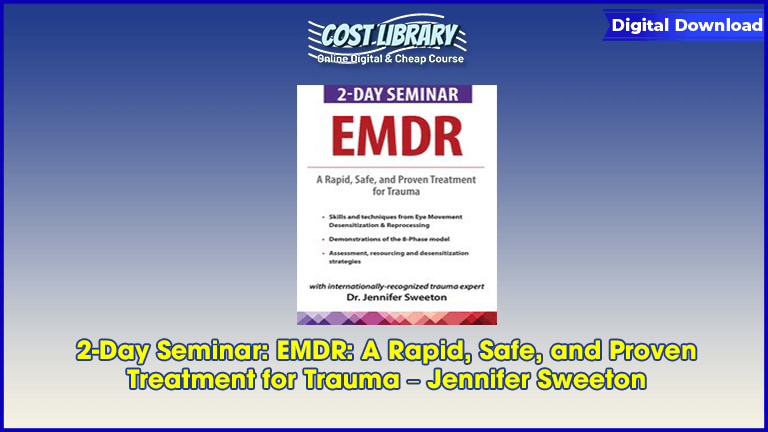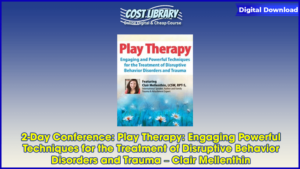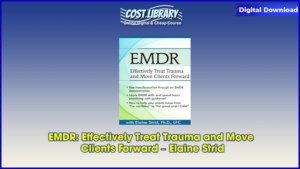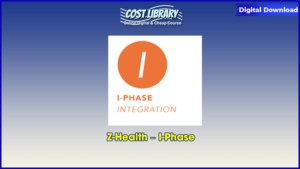2-Day Seminar: EMDR: A Rapid, Safe, and Proven Treatment for Trauma – Jennifer Sweeton
Faculty:
Jennifer Sweeton
Duration:
12 Hours 46 Minutes
Format:
Audio and Video
Copyright:
Feb 20, 2020
Description
Clients dealing with trauma aren’t always receptive to the therapeutic process. And using treatment techniques that repeatedly confront clients with the horrific details of the traumas that haunt them can cause them to be avoidant, reactionary, or completely withdrawn. It’s painful for clients and clinician alike, and it doesn’t feel like healing.
Watch this 2-Day EMDR recording and discover how this powerful, evidence-based treatment has helped thousands of clients safely and rapidly process their traumas without the need to focus on explicit details!
You’ll learn:
How EMDR can be used to overcome avoidance in clients
How EMDR techniques can help clients resolve traumatic memories
When and with which clients EMDR should be used
How to emphasize safety during sessions
How the 8-phase model is used in treatment
Purchase today and discover how EMDR can help clients find relief from trauma and reclaim their lives!
Please Note: This training is not affiliated with EMDRIA and does NOT qualify towards EMDRIA credits, training or certification.
Handouts
Manual – EMDR (8.71 MB)
102 Pages
Available after Purchase
Outline
Trauma and Neuroscience
Key brain areas involved in trauma
Polyvagal Theory, and types of freeze responses
Trauma and insecure attachment
The neuroscience of developmental trauma
Clinical implications of the freeze response
How the EMDR Approach Works
The neuroscience of exposure therapy and cognitive therapy
The neuroscience of relaxation exercises
EMDR and other “transformative therapiesâ€
Why EMDR works so well from a brain perspective
Trauma Symptoms and Assessment Tools
Traumatic memories and intrusive thoughts
Phobias and anxiety: Insula hyperactivation
Emotional hijackings and implicit memory
Avoidance cluster of symptoms
Why treating avoidance in trauma is critical
DSM-5® symptoms in a nutshell
Connecting to a diagnosis
Simple vs. complex trauma
Intergenerational trauma
Symptom clusters and physical manifestations
CAPS-5 and PCL-5
Primary Care PTSD Screen
Dual diagnosis
Overcome Avoidance with EMDR
Dual awareness
What you are thinking about is the network you’re in
Activate networks for change
Neurons that fire together, wire together (Hebb’s Rule)
EMDR as neuroentrainment
When to Use EMDR in Treatment
Demonstrations and experiential exercises
Single event trauma
Anxiety disorders involving imaginal exposure
EMDR Trauma Treatment: The Original 8-Phase Model
Client history and treatment planning
How to resource: Create a safe space
Assessment: Choose a target, SUDS, connect with the image/emotions/thought
Desensitization: Tactile vs. auditory vs. eye movement
How to use touchpoints, Theratapper, CDs
Positive Cognition Installation: Likert scale 1-7
Body Scan: Locate tension and distress in the body
Closure: Close the neural network and the 6-hour window
Re-evaluation
Demonstration of Original 8-Phase Model
Presenter demonstration
Attendee dyad practice of the 8-phase model
EMDR Techniques to Resolve Traumatic Memories
Modifications for Complex/Developmental Trauma
Do not use standard protocol – Rationale for modifications
Resourcing strategies
Techniques to reinforce and activate positive neural networks
Relevance of Polyvagal Theory, early trauma, and EMDR
Sensory motor modifications and somatic approaches
How to build Dual Awareness
EMDR techniques to bring traumatic memories from the limbic system into the prefrontal cortex
Attachment-Based EMDR: Strategies to Treat Relational Trauma
Strategies to foster the critical connection between client and therapist
Mirror neuron activation
How to emphasize safety during sessions
Guidance on order of operations
Research Limitations and Potential Risks
Faculty
Jennifer Sweeton, Psy.D., M.S., M.A. Related seminars and products: 12
Organizational Consultant, Clinical Psychologist
Mind Works Professional Education Inc
Dr. Jennifer Sweeton is a licensed clinical psychologist, author, and internationally-recognized expert on trauma, anxiety, and the neuroscience of mental health. Dr. Sweeton has been practicing EMDR for nearly a decade and has treated a variety of populations using EMDR and other memory reconsolidation approaches, including combat veterans, individuals with PTSD and complex trauma, and those suffering from treatment-resistant anxiety.
She completed her doctoral training at the Stanford University School of Medicine, the Pacific Graduate School of Psychology, and the National Center for PTSD. Additionally, she holds a master’s degree in affective neuroscience from Stanford University, and studied behavioral genetics at Harvard University.
Dr. Sweeton resides in the greater Kansas City area, where she owns a group private practice, Kansas City Mental Health Associates. She is a past president of the Oklahoma Psychological Association and holds adjunct faculty appointments at the University of Kansas School of Medicine. She is the president-elect of the Greater Kansas City Psychological Association. Dr. Sweeton offers psychological services to clients in Oklahoma, Kansas, and internationally, and is a sought-after trauma and neuroscience expert who has trained thousands of mental health professionals in her workshops.
Speaker Disclosures:
Financial: Jennifer Sweeton is in private practice. She has an employment relationship with the Oklahoma City VAMC. Dr. Sweeton receives a speaking honorarium from PESI, Inc.
Non-financial: Jennifer Sweeton has no relevant non-financial relationship to disclose.








